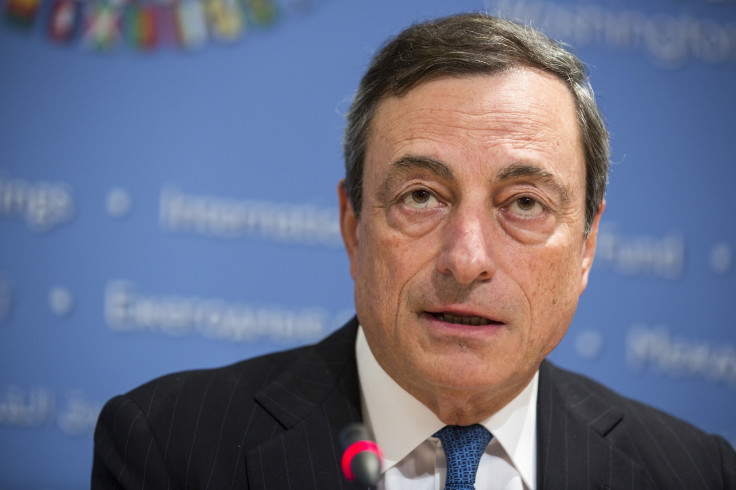ECB: Mario Draghi sends markets soaring by hinting at possible increase of QE programme

European Central Bank (ECB) president Mario Draghi has hinted today (3 September 2015) that the organisation might extend its Quantitative Easing (QE) programme, sending stock markets soaring. Germany's DAX was the biggest riser, jumping 2% on the news in the afternoon, while the FTSE 100 gained 1.3% and the French CAC 40 was up over 1.8%. The Dow Jones shortly jumped more than 100 points at the open.
Analysts had largely expected an announcement that the QE, the ECB's asset-buying plan, could be increased in size because of global financial uncertainty based on a growth slowdown in China. Draghi said during a press conference: "In particular [the Governing Council] recalls that the asset purchase programme provides sufficient flexibility in terms of adjusting the size, composition and duration of the programme."
The ECB announced that it is keeping interest rates unchanged at its record low of 0.05% and it has not touched the size of the QE programme yet. However, Draghi left the door open for a possible increase of the plan. The governing council of the bank also announced it increased the issue share limit from 25% to 33%, meaning it can buy a higher proportion of shares for the QE programme.
Antonio Garcia Pascual and Philippe Gudin, analysts at Barclays, commented: "While clearly stated that this is aimed at a smooth implementation of the current asset-purchase programme, we also interpret this decision as a signal that additional QE measures could be deployed to lean against a revised downward inflation outlook (eg, expansion of QE beyond September 2016)."
Although the QE extension was seen as positive news, Draghi revised down economic growth and inflation in the eurozone. For 2015, he expects the Euro GDP to grow by 1.4%, down from 1.5%, while his economic growth forecast for 2017 was revised down by 0.2 percentage points to 1.8%.
Inflation for 2015 was re-estimated to be 0.1%, compared with 0.3% prior and, although Draghi said that 2017 inflation would be around 1.7% (down from 1.8%), he warned that there is a significant threat of deflation in the eurozone in the short term.
© Copyright IBTimes 2025. All rights reserved.






















